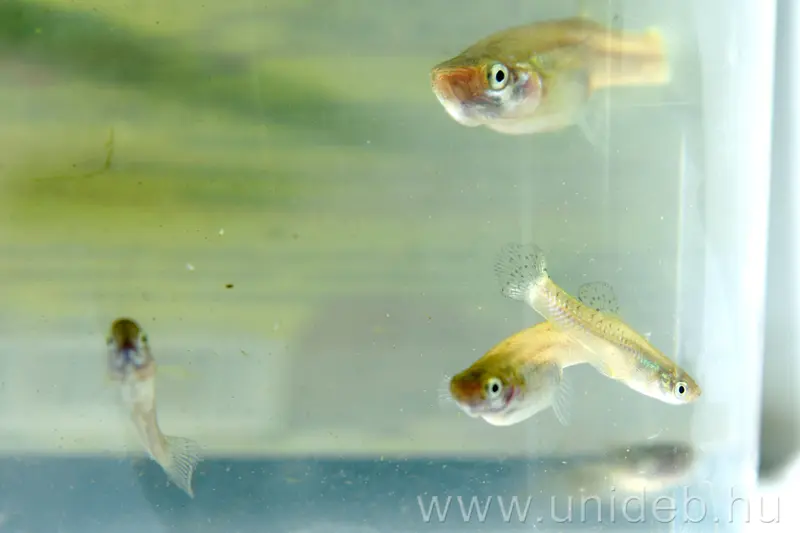The fish species of the Great Plain are "moving"
The contamination or dehydration of natural waters, and even some birds, endanger the native fish species of our country. Due to climate change, the Great Plain species migrate to the mountains, but in the thermal waters of Hajdú-Bihar County, researchers from the University of Debrecen found a new community.
Bream is the largest stock in Hungarian lakes and rivers. However, due to climate change, many invasive fish species have appeared in an increasing number. These animals compete with their native peers for both food and habitat. But this is not the only threat to domestic stocks.
- There is pressure from many directions on natural fish communities. Due to drought, not only in the lakes of the plain, but also in the mountain streams, fish species are threatened with destruction, because if they dry out, it will seal the fate of the fish. Surprisingly, birds can cause huge damage, too. Recently, for example, stomach samples from forty large cormorants were taken from the upper Tisza region and found to have consumed almost only protected or highly protected fish, said Lajos Juhász, associate professor of DE, Agricultural, Food Science and Environmental Management.

The Department of Zoology and Wildlife Management of the Nature Conservation Department has been conducting natural water and fishing research for several years, primarily in the rivers of Northern Hungary. For more than ten years, Lajos Juhász head of department has been researching the fish community of the river Bódva and its water system on both the Hungarian and Slovakian sections, and last year he measured the ten watercourses of the Zemplén Mountains with his colleague. However, the new studies that have just begun are even more exciting.

- We are examining the fish communities of thermal water spills, because hot water often maintains species that would otherwise die. Although we are still at the beginning of the research, we have recently made a surprising discovery: we found a viviparous mosquitofish (Gambusia affinis) in a Hajdú-Bihar thermal water spout, which is completely unique, Lajos Juhász informed.
The environmental impact of climate change was the central theme of this year's 15th Conference of the Hungarian Fish Society, organized at the University of Debrecen. The anniversary event was opened by István Komlósi, Dean of DE MÉK on Thursday. The two-day meeting of natural fish fishermen from three countries presented their research.
- The aim of our conference is to get to know fish, communities living in natural waters, to assess their situation and to make suggestions for protection. We were pleased to see that this year, more than 25 professionals will be present at the conference. Among other things, the relationship between fish and water management, the testing of aquaponic systems for conservation purposes, the pumpkinseed sunfish (Lepomis gibbosus) and monkey gobey (Neogobius fluviatilis) stocks, the spreading of decapode (Decapoda) in Hungary, and the fish ladder of the small hydroelectric power plant in Felsőbesenyő, Upper Hungary will be discussed, stressed Ákos Harka, president of the Hungarian Fish Society.

The organization was founded in 2005 by the Agricultural Faculty of the University of Debrecen. Not only are they organizing regular professional conferences but also initiated the Fish Day (March 20), launched a scientific journal called Pisces Hungarici and created an internationally visited website. Here you can vote every year for the fish of the year, which is the common rudd (Scardinius erythrophthalmus) in 2019, one of the most beautiful fish in Hungary.